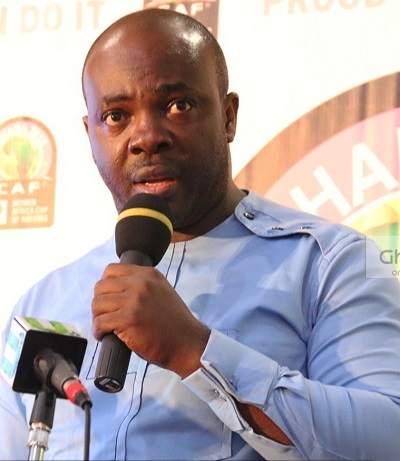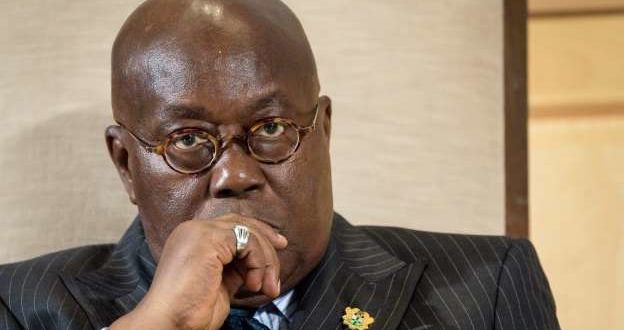It is more than 80 days now since the government relaxed COVID-19 restrictions on aspects of the nation’s sports, specifically non-contact sports. It was a great move towards the gradual return of normalcy.
Again, it may have come as pleasant news to the football populace when the President on July 27 announced that the junior national teams were free to pitch camp and prepare for their respective international assignments.
That proclamation was celebrated – even if on the quiet, by the game’s stakeholders, who were now convinced that on the President’s next engagement with the nation, football would be set free from the fetters of COVID-19.

Wrong. That was not to be – albeit the Ghana Football Association (GFA) and the Ministry of Youth and Sports had submitted to government comprehensive documents depicting the road-map to the restart of ‘safe football.’
Indeed, football has been in jail since mid-March when the pandemic struck the world cold, throwing the domestic season into tatters. Sad to recall, the pandemic came at a time the league was full of piss and vinegar and it was going full throttle.
As a matter of fact, pressure began to pour on the GFA and it had no choice but to efface off its 2019/20 Premier League season altogether as numbers of people suffering from COVID-19 continued to escalate dreadfully.
Heartily, we have come a long way now as the nation has made significant progress in its fight against the pandemic. As of Sunday when this piece was being put together, Ghana had recorded 1,712 active cases with 261 deaths of the confirmed 43,505 cases. This means that 41,532 patients have so far recovered.

It is no wonder that Ghana has been included in the list of countries safe to travel to amid coronavirus by the World Travel and Tourism Council 2020.
Clearly, the fight against the pandemic is being won. It is a big credit to the government and the good people of Ghana. But do we still have any sufficient reason to keep football on ice? If yes, for how long?
It would interest you to know that even countries that have recorded far more devastating fatalities, have their football back now – even if not fully with regard to crowd attendance. Nothing stops us from treading that path.
Ghana has one of the lowest casualty rates in the world, an indication of the fact that we are doing something right. Not so?
Countries worst hit by COVID-19 are USA with total cases of 5.6m with more than 176,000 deaths; Brazil (3.58m with 190,000 deaths), Italy (258,136 cases with 35,430 deaths) and Spain (386,000 plus with 28,838 deaths), among others. These countries, though, have some amazing recovery rates.
But more remarkable is the fact that the aforementioned countries had their football back long ago. In our part of the world, South Africa – the continent’s biggest hit with 607, 000 cases and 12,987 deaths with 504,000 recoveries, resumed football a couple of weeks ago.
The South African Premier Soccer League (PSL) resumed on August 8 with the aim of completing the 2019/20 season fixtures. Other African countries like Morocco, Egypt, Tunisia, Tanzania, Burundi, etc, have all jogged back into action. Where is Ghana? And, why not Ghana?
The Kurt Okraku-led FA is to pay out $270,000 to the Premier League clubs ahead of the new season after it announced the disbursement of the FIFA/CAF Covid-19 relief funds last month. Per the relief, the 18 Ghanaian top-flight clubs will manage $15,000 each from the total financial package of $1.8 million made available by FIFA and CAF.
Other beneficiaries of the relief fund include national teams, referees, match commissioners, the Ghana League Clubs Association (GHALCA), among others.
Division One League clubs are also expected to take home $7,500 as part of their share of the fund. Per data from the GFA, the nation’s football is said to employ about 70,000 footballers that feed into the socio-economic architecture of the country.
Most of these players, unquestionably, are breadwinners of their family. Failure to resume football soon would only mean more hardship for these beautiful actors who depend on nothing but football for survival – not to talk about the shooting pain that club owners are going through at the moment to keep their teams together. Truth is that a good number of club owners are said to be in Queer Street. Maybe, it is a general malaise.
Perhaps, we need no one to tell the authorities concerned about the number of people that football employs outside the field. The food vendors, the ‘pure-water’ sellers, club paraphernalia dealers, etc, all depend tremendously on football for survival.
Trust it, even if you have clubs playing in empty stadium, you can still be assured of having supporters outside of the perimeter waiting anxiously to catch a glimpse of their adored players; so there would still be some form of business around for the providers.
On recommencement of football, one expects to see the authorities allowing a small number of fans to the stadium. Ghana could become the first country to do so, and that would be great. If there is easing of restriction on mass gathering, any reason why it cannot be applied to football? For how long can we keep our powder dry?
If we claim coronavirus has come to live with us, then let us make do with it. Much as we need to be cautious and adhere to the safety protocols, let us not allow it to filch our joys away. Indeed, football is one of the nation’s biggest delights, and we desperately need it back now.
Truth is that we have no business keeping football in ‘jail’ any longer. Let us free it now from the manacles of COVID-19! Let us not lose the plot. Indeed, if we fail to do anything quickly about the situation, our players would file out like rats deserting a sinking ship – when our ports and borders are opened.
In the same vein, efforts must be made to get boxing and other contact sport disciplines back – just like other countries across the world – including USA, have done.
For the GFA, they believe they have come up trumps and are only awaiting the government’s green light to hit the ground running again. Life must go on!
–Ghanaian Times
 Home Of Ghana News Ghana News, Entertainment And More
Home Of Ghana News Ghana News, Entertainment And More





